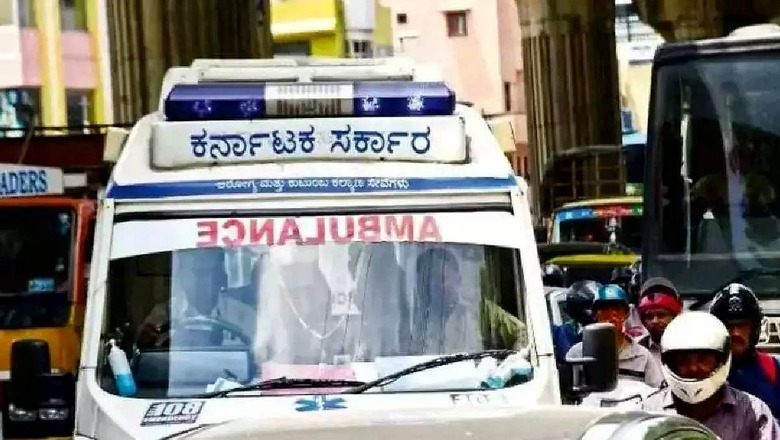
views
In a significant development, the Bengaluru traffic police have introduced new guidelines stating that fines issued by Bengaluru City Police for disregarding a traffic signal to allow passage for an ambulance will now be waived.
The decision has been made to address community concerns and improve traffic management in the city.
MN Anucheth, Joint Commissioner of Police (Traffic), highlighted incidents where fines have been issued via traffic signal cameras for instances of traffic violations committed to clear the path for ambulances.
Commuters who have received such fines are advised to contact the traffic management center on Infantry Road to address these issues with the authorities. “Also, individuals can file a claim through the Karnataka State Police (KSP) app,” MN Anuchet added, as per India.com
He further explained that every traffic signal equipped with a camera records incidents for 5 seconds. If it is found that a motorist jumped the signal to facilitate an ambulance, the fine will be promptly cancelled.
Furthermore, the Bengaluru Traffic Police has installed geofencing at ten traffic signal junctions to detect ambulances equipped with GPS and automatically switch the signal green. In this context, the health and welfare department stated that GPS has been installed in around 80 ambulances that travel via 10 junctions.
A recent report by The New Indian Express stated that to improve the city’s traffic management system, 750 new AI-enabled smart cameras will be installed in the existing network of 7,500 CCTV cameras in 3,000 crucial sites.
Talking to TNIE, Raman Gupta, the Additional Commissioner of Police (East) shared that the aim behind this step is to help with traffic management and to constantly monitor various situations such as road rage, hit-and-run cases, women harassment and other law and order issues.
These AI-enabled cameras, which are linked to the command centre, will be used to preserve law and order as well as properly manage traffic, he stated.
Also, as per the report, the third phase of the Safe City project will include the installation of 150 watch towers and eight high-definition face-recognition cameras at bus stops, railway stations, airports and the Chinnaswamy stadium to keep an eye out for troublemakers and suspicious individuals. The third phase is expected to be completed by October.















Comments
0 comment